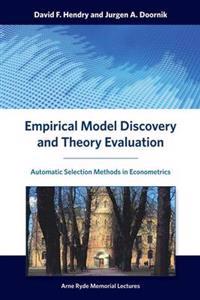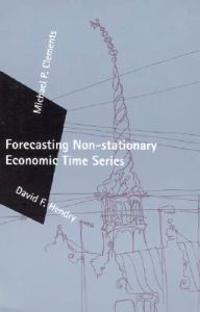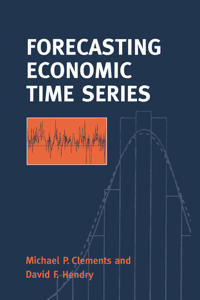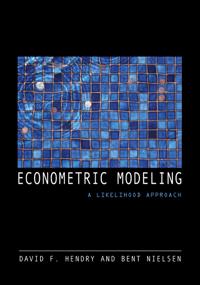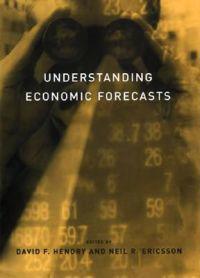Empirical Model Discovery and Theory Evaluation (Inbunden)
avDavid F. Hendry, Jurgen A. Doornik, David F. Hendry
ISBN: 9780262028356 - UTGIVEN: 2014-07Economic models of empirical phenomena are developed for a variety of reasons, the most obvious of which is the numerical characterization of available evidence, in a suitably parsimonious form. Another is to test a theory, or evaluate it against the evidence; still another is to forecast future out[...]
Forecasting Non-Stationary Economic Time Series (Pocket)
avMichael P. Clements, David F. Hendry, Michael P. Clements
ISBN: 9780262531894 - UTGIVEN: 2001-03Economies evolve and are subject to sudden shifts precipitated by legislative changes, economic policy, major discoveries, and political turmoil. Macroeconometric models are a very imperfect tool for forecasting this highly complicated and changing process. Ignoring these factors leads to a wide dis[...]
A Companion to Economic Forecasting (Övrig)
avEditor:Michael P. Clements, Editor:David F. Hendry
ISBN: 9780470996430 - UTGIVEN: 2008-02-29Forecasting Economic Time Series (Pocket)
avMichael P. Clements, David F. Hendry, Michael P. Clements
ISBN: 9780521634809 - UTGIVEN: 1998-12This book provides a formal analysis of the models, procedures, and measures of economic forecasting with a view to improving forecasting practice. David Hendry and Michael Clements base the analyses on assumptions pertinent to the economies to be forecast, viz. a non-constant, evolving economic sys[...]
Econometric Modeling (Häftad)
avDavid F. Hendry
ISBN: 9780691130897 - UTGIVEN: 2007-03"Econometric Modeling" provides a new and stimulating introduction to econometrics, focusing on modeling. The key issue confronting empirical economics is to establish sustainable relationships that are both supported by data and interpretable from economic theory. The unified likelihood-based appro[...]
A Companion to Economic Forecasting (Häftad)
avEditor:David F. Hendry, Editor:Michael P. Clements
ISBN: 9781405126236 - UTGIVEN: 2005-04-30Understanding Economic Forecasts (Pocket)
avDavid F. (EDT) Hendry, Neil R. (EDT) Ericsson, David F. (EDT) Hendry
ISBN: 9780262582421 - UTGIVEN: 2003-09Historically, the theory of forecasting that underpinned actual practice in economics has been based on two key assumptions?-that the model was a good representation of the economy and that the structure of the economy would remain relatively unchanged. In reality, forecast models are mis-specified,[...]

